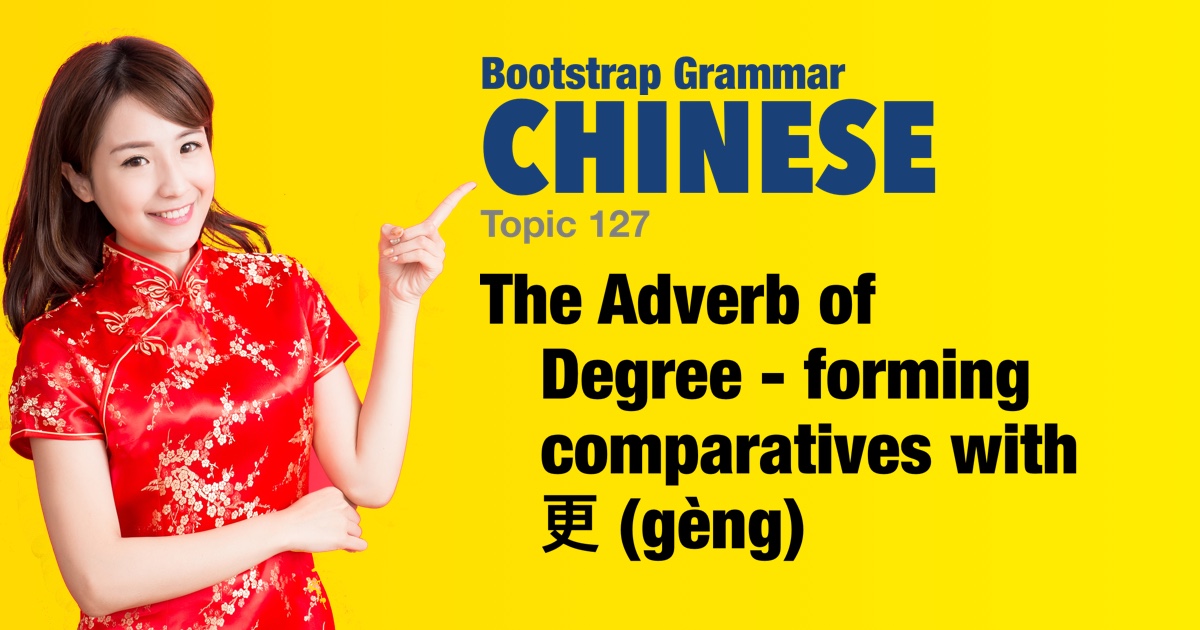Chinese grammar - The Adverb of Degree - forming comparatives with 更 (gèng) |
|||
|
|||
The Chinese word 更 (gèng) means 'more' and is used to form comparatives. It is used to form 'adverbs of degree'. — This is like going from 'good' to 'better' or from 'big' to 'bigger' in English. Just put 更 before an adjective to form the comparative. |
| Examples: | |
|
这个地方更漂亮。
zhè ge dìfāng gèng piàoliang. This place is even more beautiful. |
|
|
他更高。
tā gèng gāo. He is taller. |
|
|
今天的天气更热。
jīntiān de tiānqì gèng rè. Today's weather is even hotter. |
|
|
她更努力。
tā gèng nǔlì. She is working harder. |
|
|
现在更冷了。
xiànzài gèng lěng le. It is even colder now.
|
|
|
昨天的会更有趣。
zuótiān de huì gèng yǒuqù. Yesterday's meeting was more interesting. |
|
|
他去年更忙。
tā qùnián gèng máng. He was even busier last year. |
|
|
那天的食物更好吃。
nà tiān de shíwù gèng hǎochī. The food was even tastier that day. |
|
|
那次旅行更难忘。
nà cì lǚxíng gèng nánwàng. That trip was even more unforgettable.
|
|
|
明天会更热。
míngtiān huì gèng rè. Tomorrow will be even hotter. |
|
|
我们这么做更好。
wǒmen zhème zuò gèng hǎo. It's better if we do it this way. |
|
|
她以后会更努力学习。
tā yǐhòu huì gèng nǔlì xuéxí. She will study even harder in the future.
|
|
|
这个项目会更成功。
zhè ge xiàngmù huì gèng chénggōng. This project will be even more successful.
|
|
|
明年的比赛会更激烈。
míngnián de bǐsài huì gèng jīliè. Next year's competition will be even more intense.
|
|
|
他下次会更早到。
tā xiàcì huì gèng zǎo dào. He will arrive even earlier next time.
|
|
|
如果你努力学习,就会更聪明。
rúguǒ nǐ nǔlì xuéxí,#jiù huì gèng cōngmíng. If you study hard, you will become even smarter. |
|
|
如果天气好,就会更开心。
rúguǒ tiānqì hǎo,#jiù huì gèng kāixīn. If the weather is good, we will be even happier. |
|
|
如果你多练习,就会更流利。
rúguǒ nǐ duō liànxí,#jiù huì gèng liúlì. If you practice more, you will be even more fluent.
|
|
 |
|



